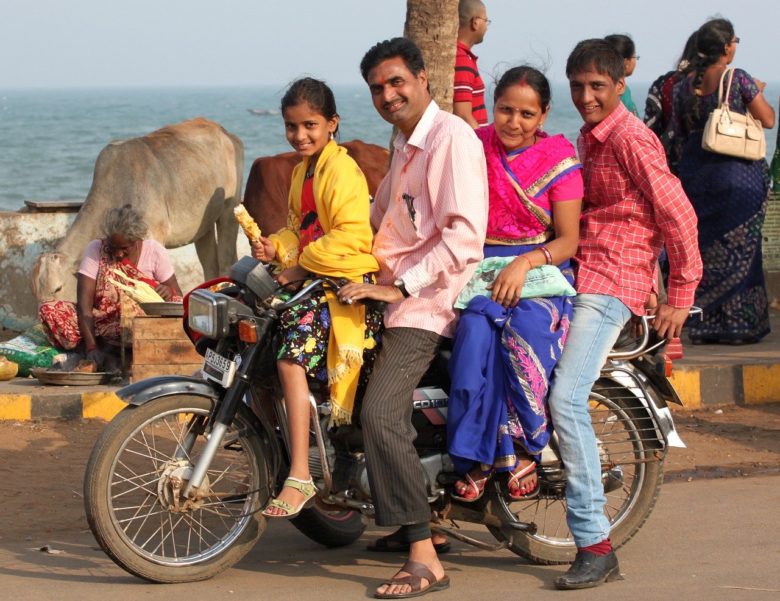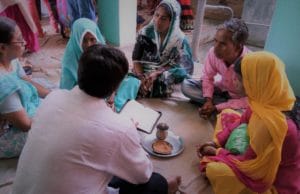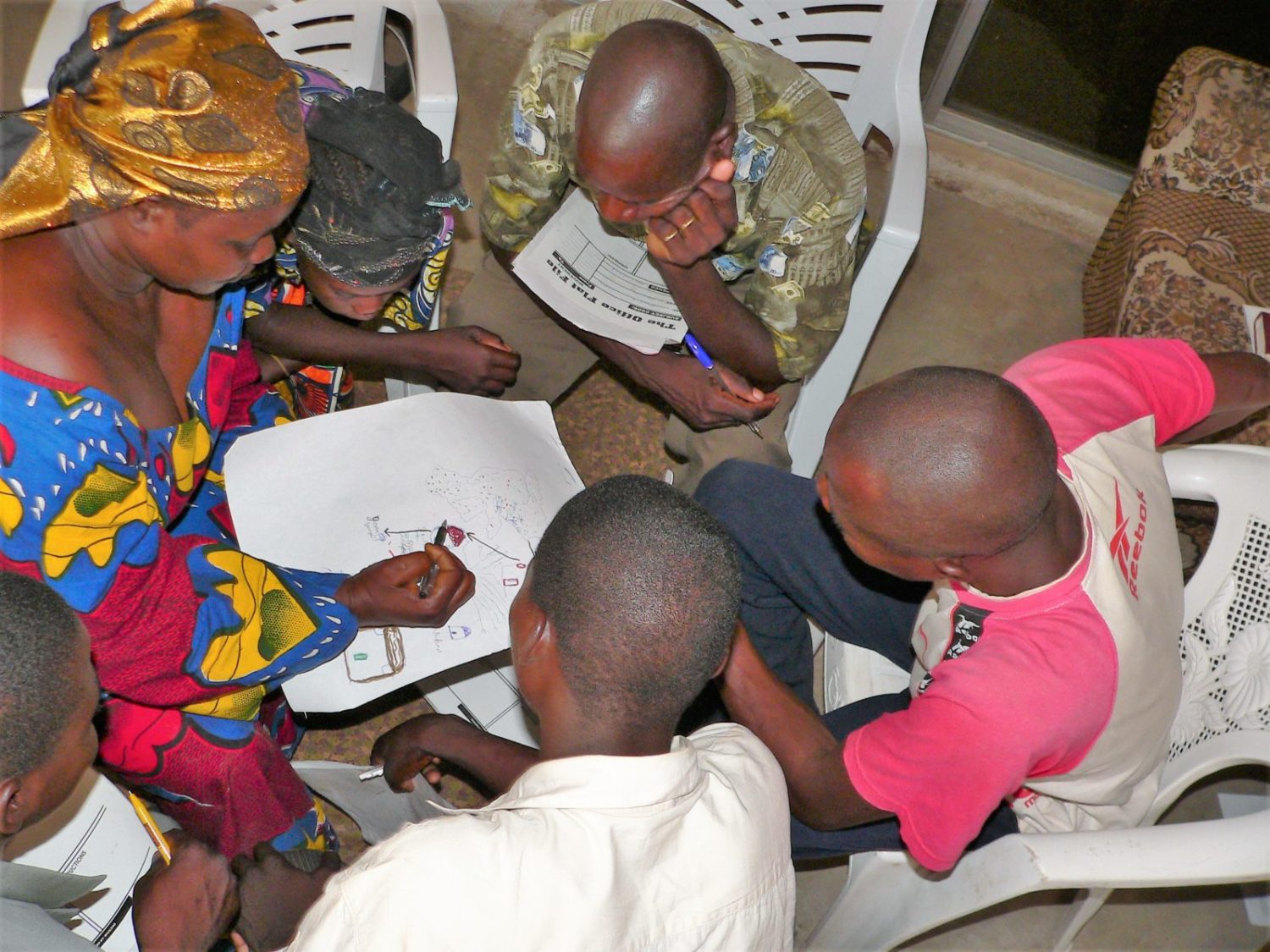“My teenagers need a youth group!” they said, as they told us they were no longer going to join the regular disciple makers meeting. It was disappointing to hear. Concerned parents want to see their children’s spiritual needs met. This can be a real issue. Parents express apprehension about whether their children will get what they need in a DBS or story group. How do we best disciple the children of families in our teams and disciple making groups?
This issue requires us to speak into the parent’s lives in a unique way. It can be difficult. It also creates an opportunity to help those we are training to return to a more biblical style of parenting. One where disciple making happens within families.
As we disciple parents to become disciple makers themselves, we must think holistically. The first responsibility a parent has is to train their own children to follow God and obey Christ’s commands.
Let’s move away from the belief that children need to be entertained. Instead, we must understand that these kids can become powerful disciple makers in their own schools, communities, and contexts.
If we view them only as “children” who need to be taught or given a good program, we miss their tremendous potential. Kids have the ability to significantly contribute to the growth and life of a movement.
Trying Out a DBS-Type Study in Our Family
Long before I heard about DBS, we heard about a 7 step Bible study method for multiplying disciples. It wasn’t exactly the same as DBS but had similarities. At the time my children were in early elementary school. “Before I try this with others,” I thought, “let me see if this can work for my family.”
We decided to use this method for our family devotions. At the time my son was under two years old. He would toddle around, sit in my lap, get up, and wander around the room. My oldest daughter was in grade 2, and my second daughter was in kindergarten. They actively joined in with my husband and I in studying God’s Word.
Our oldest would read the passage out loud. She enjoyed doing that. Then my husband or I would read it again. We then used discussion questions to talk about it.
Our two girls actively participated and often had very good insights and answers. At the end, we asked ourselves the question. “What should we as a family do to obey this passage?“
Though young, they were fully capable of answering this together with us. Sometimes we came up with answers like “We will make a meal and take it over to our sick neighbor this week and then pray for her.” Other times our answers had to do with sharing the story of Jesus with someone at school.
I was blessed and amazed at how easily our kids participated and took action! This tool helped us to disciple them to become disciple makers.
Returning to the USA With All Its Programs
As our kids grew up, these kinds of participatory Bible studies became very natural for them. We interacted with our kids as disciples, capable of ministry to others. They had spiritual gifts and carried the same responsibility we did to obey Jesus.
When we returned to the USA for a furlough, our kids had the opportunity to attend an excellent youth program. Our home church had one of the best youth groups in our area and I was excited to see how our kids would benefit from this. I assumed they would love it and be excited to be a part. That wasn’t exactly what happened…
Our kids attended the Wednesday night services for young people. They were good about it, and did their best to participate, in spite of the cultural re-entry shock common to Third Culture Kids. I was surprised to hear their feedback.
“We don’t care about being entertained. Youth group in America is all about parties and fun. We like that, but what we care about is being discipled and having a chance to let God use us in real ways. Going to youth service doesn’t have much impact on our lives.”
My son would go to the youth group because he was a passionate worshipper. During the worship time, he deeply entered in, regardless of what his peers did. The rest of the time he was bored.
1 Tim 4:12 NIV.
“Don’t let anyone look down on you because you are young, but set an example for the believers in speech, in conduct, in love, in faith and in purity.”
Principles for Dealing With Family Issues in DMMs
1) Shift your mindset from entertaining kids to training them.
We are so used to believing that kids must be entertained rather than trained! What if instead of sticking them in another room with a video while you have your DBS together, you instead let them participate?
2) Children and Teenagers need to be taught that they too are royal priests.
Assess the degree to which the children/teenagers in the families connected to your groups understand who they are in Christ. Teach them who they are as sons and daughters of God. They are royal priests, chosen ones able and expected to bear fruit, and as trainers of trainers. This is the place to begin!
3) Cast vision for movement to children and teenagers, get buy-in from them as well as their parents.
As you train them in the Great Commission, encourage them to pray and ask God for His vision for their own oikos/network of relationships. Help them see what God could do through them to start a movement and invite them to pray with you for this.
4) Expect more of children and teenagers. They will rise to the challenge.
God has used children and teenagers throughout history. He still can do so today! David was a teenager when he killed Goliath. Naaman, the military commander, experienced a miracle through the testimony of a servant girl. The movement we started in Nepal began through a group of fifteen and sixteen-year-old teenagers. The first movement in Mongolia was started through teenage girls. We must believe in them and challenge them to rise up and be who God has called them to be.
5) Don’t always separate kids into their own groups.
Sometimes this may be necessary or helpful but also have some joint times where they make a real contribution. We are stuck in the traditional model of letting kids stay for worship then dismissing them for the teaching/preaching time. When using a participatory and simple model, you don’t need to do this!
6) Help parents understand their responsibility to train their kids to obey Christ and multiply disciples.
Ask parents struggling with these issues how much quality time they are investing in mentoring and training their own kids at home. Are they expecting the “youth group” to meet their kid’s spiritual needs when they as parents must be doing this?
It’s Not Easy
I recognize that the suggestions I’ve given above are not necessarily easy to implement. There are many forces pushing us and our kids in the opposite direction. Very few churches expect teenagers to actually be disciple makers. They are not challenged to exercise their spiritual gifts in any significant way. We must work to change this paradigm if we want to see movements in the West. Those of you from Africa or Asia, this is one place where you should avoid adopting an ineffective Western church model of discipling children!
What one thing could you do differently this week (as it relates to children and teenagers) that would be a step forward in this? I’d love to hear about it in the comments or on the DMM Frontier Missions Facebook Group.
Starting your first discipleship group?
Subscribe to get help for the 1st steps of starting a movement.



